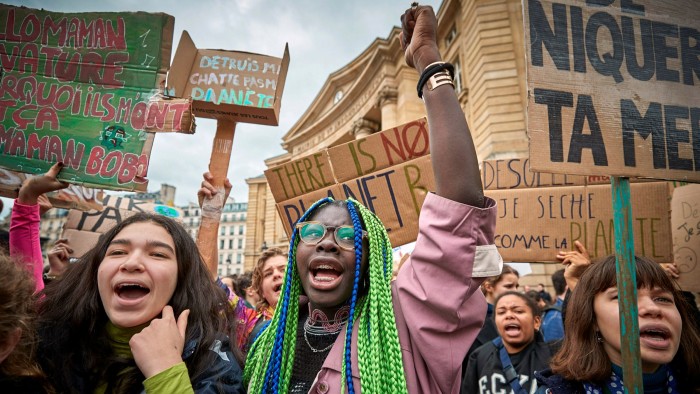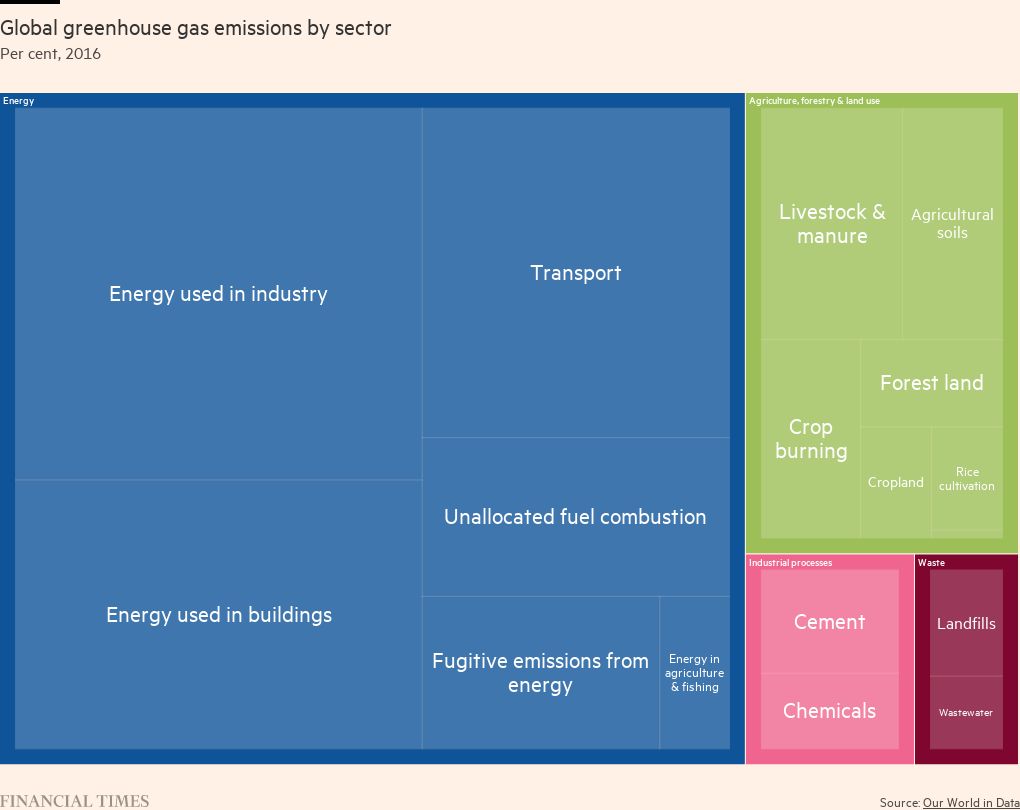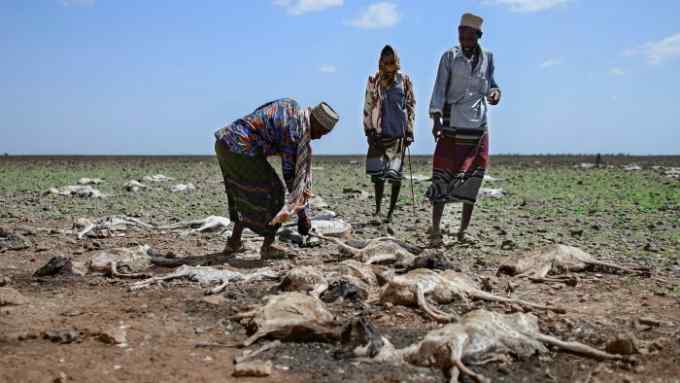Climate threat sparks youth action

Simply sign up to the Climate change myFT Digest -- delivered directly to your inbox.
Global warming — as a result of human activity — is affecting agriculture and jobs, causing migration and conflict, and shifting patterns of disease and lifestyle around the world. Scientists, citizens, governments and businesses alike are being forced to reflect and react.
Young people are on the frontline in the fight against climate change and will bear the greatest consequences of inaction. But, through changes to their own lifestyles and activist movements such as Fridays for Future, they are also playing an important and growing role in pushing government and business leaders for a better response.
This report is designed for, and is about, young people and the climate, with articles aligned to curriculum subjects such as science, economics and politics.
We explore the science behind the greenhouse effect, and how climate change is contributing to extreme weather conditions.
Faced with the scale of climate change, there is a risk of “eco-anxiety” and powerlessness among young people. Yet an analysis for the FT by Quilt.ai, a data analytics company, found that, in teenagers’ social media conversations on Twitter, TikTok and Instagram, 15 per cent are passionate activists, just 2 per cent climate deniers, and 1 per cent fatalists. About 36 per cent want careers that are good for the planet.
We assess the impact of individual lifestyle choices, examining the trade-offs between, say, opting for a meat- or plant-based diet, and staying local versus flying abroad on holiday.
We also profile Liz Thomas, a paleo-climatologist who works in Antarctica, as an inspiration to the growing number of young people seeking to do green jobs.
There is exciting progress being made in technology, with investors pouring funds into the latest innovations to mitigate the effects of global warming.
Our shortlist of student climate champions from around the world is highlighting how schools, teachers and students are taking action to tackle climate change. Their activities and energy are an example to all.
We will help you understand why the geopolitical debates around the annual UN climate negotiations get so heated, and predictions ahead of the next Conference of Parties in Sharm el-Sheikh.
And, we have a practical guide on how to use your savings to put pressure on the fossil fuel sector or support more positive environmental activities.
A growing number of schools are incorporating climate change into the curriculum, in special lessons or integrated into existing subjects, as well as encouraging projects by students to engage with their schools and communities.
Koen Timmers from the Climate Action Project, a Dutch non-profit organisation, cautions that the quality is variable and providing support and training to teachers is essential. “It can be a win-win. Teaching climate also addresses critical thinking, empathy and collaboration — by speaking about climate change you are targeting all of those skills. It’s not just about knowledge. What we really need is a change of behaviour and mindset,” he says.
Throughout the report, we have included suggested questions from our panel of teacher advisers from the FT Schools programme.
We hope they are of use to other teachers and students in or beyond the classroom.
Further resources for students and teachers
FT resources
Climate Capital Explore the FT’s climate coverage in once place
Moral Money Stay ahead of socially responsible business and finance news
FT Schools Through its schools programme, the FT offers free online access to students, teachers and schools
Sign up to watch FT journalists and expert speakers discuss the latest trends and responses to climate change at our recent events:
FT Climate capital live (promo code: VODCOMP)
Climate change quiz Test your knowledge of climate change with our quiz and try drawing your own chart
Country comparison How each country’s emissions and climate pledges compare
External resources
Action for the climate emergency
UN Environment Programme earth school
US Environmental Protection Agency
National Center for Science Education


Comments